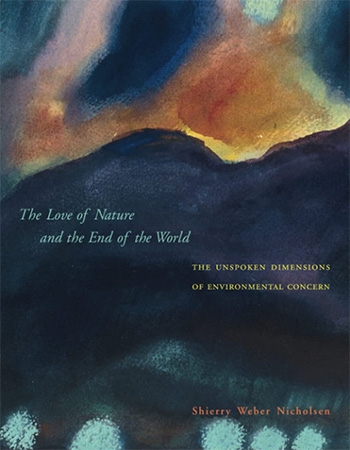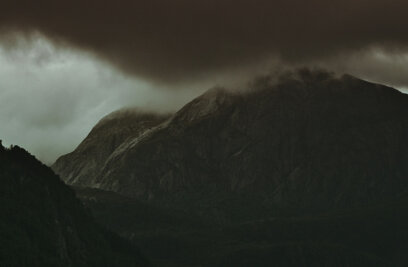Falling Silent

It is not birds that speak, but men learn silence.
—Kathleen Raine
To “learn silence,” in the poet Kathleen Raine’s words, means that one must be able to become silent, to leave one’s habitual talking. A friend told me a story of students who spent time in the Australian rainforest. Returning to town after a long period in the forest, her students said that in the forest they felt obligated to be silent, and on returning, they found the constant chattering of humans draining. What is it for, they asked themselves. Meditators returning from retreats report something similar: How tiring it is to talk!
Immersion in the great forest imposed a respectful silence on the students, which in turn allowed them to attend to the life processes of nature, the constant emerging of life in its own time, without artificial justifications. The function of much human talk seemed obvious by contrast — a blind way of proving to oneself that one is alive, or perhaps a way of putting barriers between oneself and another person, ensuring that nothing can emerge from the space that silence would make. The philosopher Maurice Merleau-Ponty commented that looking at other paintings after Cézanne’s is like hearing ordinary talk start up again after a funeral. Entering that silence does indeed feel like a kind of death to the ordinary self.

The silence of nature is not a silence of individual creatures but the silence of the natural world as such. It is utterly compatible with sound. It is simply that the sounds of nature are contained within its silence. “Even the subdued roaring of the waves cannot destroy the proofed silence of the oceans,” writes philosopher and mystic Omraam Mikhaël Aivanhov. This silence of nature is more than an absence of human language. It is an overarching sense of both containment and potential, of vitality ever emerging and not yet grasped.
Nature’s silence is felt not as an absence, a lack of communication, but as a powerful summons on the part of the natural world, a demand for attention to be paid. Obeying this command means shifting to a different kind of attention. This shift is what we call “falling silent.” We descend — really, we deepen — into a profound attention from which something can come to meet us. In this state, we can be touched by the intense aliveness and presence of the natural world and its creatures, among which are we ourselves. Laurens van der Post, in his book “The Voice of the Thunder,” tells about a time when he and his companions entered Hokkaido in a storm and went into a restaurant for warmth. Suddenly, from the corner of the room behind him, he writes,
a bird began to sing, and it sang with such beauty and such clarity and such authority that the whole room went silent. I have never heard a bird song more beautiful. Both my friend and I were almost at once in tears . . . I do not know for how long the bird sang, but the silence was un- broken. Not a teaspoon made a glass or cup tinkle, not a whisper, not a clatter of crockery or trays being laid out in the great kitchen came there to disturb it. It was a moment utterly timeless in a way that could not be misunderstood, because it was free of all physical and material barriers and impediments of personal pain and injury, as if it were fulfilling directly the measure of the will of creation invested in that little body of a small bird, unwounding itself there and regaining its full sense of being, with its heart in its throat.
In the silence into which they fell, the men were able to experience the “full sense of being,” with its vulnerability (the bird had been blinded on the assumption that blindness would improve its singing), its beauty, and the authority inherent in life itself:
The immense power of the music had an almost paranormal quality of command that was supreme, because it was not an expression of power itself but came purely from what the music was within itself; an expression rather of ultimate harmony and beauty, asserting itself in its most vulnerable and defenseless form, relying for its own authority and impact solely on its beauty and its necessities of order and measure and the lucidity of its voice.
And in a similar experience, in a restaurant in Kenya on a day full of dust, van der Post tells us, the roar of a lion came suddenly from outside:
At once all conversation ceased and everyone listened with instinctive reverence as if to the voice of a god. The lion was close, and the immediacy of the sound came like lightning from its throat; the authority of the voice proclaimed as if on behalf of life itself, through the absence of fear and doubt in its utterance. Even when the lion’s announcement ended, we remained silent long enough to hear another lion answer at length from far away. Only when that answer ended the primordial dialogue did the men gasp, as if coming up for air out of an unfathomed deep them- selves, and start to talk again.
The commanding sounds of the bird and the lion plunge the listeners into an “unfathomed deep” of profound silence. There the voices of the nonhuman meet the receptivity of the listeners at a depth that does not have words. To those receptive ears the voices are those of a god, of life itself. The men are witness to a “primordial dialogue.” This is an experience of awe, and there are no human words for it while it is happening. Indeed, when the people in the restaurant begin to talk, it is a sign that they have emerged from the depths and are no longer participating in the experience. If the words for this unfathomed experience are to be found at all, they will evolve over time, with the fathoming that is reflection.
Shierry Weber Nicholsen is a psychoanalyst in private practice in Seattle and a former faculty member in Antioch University Seattle’s M.A. Program on Environment and Community, teaching environmental philosophy and psychology. She is the author of “Exact Imagination, Late Work: On Adorno’s Aesthetics” and “The Love of Nature and the End of the World: The Unspoken Dimensions of Environmental Concern,” from which this article is excerpted.




